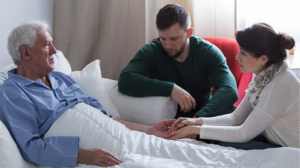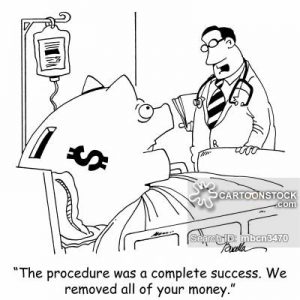In their essay, Mappes and Zembaty explore the complex relationship between patient autonomy and familial obligations. Essentially, they argue that the concept of autonomy must be reevaluated, as there is a profound need to clarify the influence of family interests in a patient’s decision for treatment. After resolving the definition of autonomy, it is imperative to consider the need for hard paternalism when patient decisions diverge from family interests.
Although medical treatments apply to individual patients, the patients must consider factors beyond themselves when determining the best course of action, such as external issues and individuals. A patient may consider a diverse range of issues, including financial burdens or familial stress, when choosing between various treatment options. As a result, the patient may evaluate external factors outside of the medical realm. One might argue that this particular practice threatens the conventional concept of autonomy, as family members exert undue influence and pressures on a patient to act in a certain manner (Ho). Under this particular argument, family members appear to threaten the patient’s decision-making ability. Thus, a fundamental question arises: does the consideration of family interests limit a patient’s autonomy, as the patient is not acting without controlling influences?
In this particular debate, it is imperative to consider the patient’s acknowledgement of familial interests. Generally, it is nearly impossible for a patient to make a decision without considering the impact on his or her family—patients tend to evaluate external factors that extend beyond their own health, happiness, and general being. Therefore, a patient’s interests can become easily intertwined with their family’s preferences. Despite the perhaps inevitable consideration of external familial interests, patients have the full authority to either act on or ignore the family’s preferences. Therefore, the consideration of family interests does not violate the patient’s autonomy, as the patient has the ability to weigh the potentially diverging obligations and determine the best course of action based on their personal preferences and values.
After establishing the preservation of autonomy in the presence of familial interests, it is important to clarify the role of the physician. Specifically, one must acknowledge the potential requirement of hard paternalism in cases when a patient’s decision does not align with the family’s interests. In the essay, the authors describe a case in which a competent stroke patient wants to rely on his wife as a caregiver, rather than entering into a nursing home (Mappes and Zembaty). If the physician respected the patient’s decision, then an intense burden will be placed on the frail wife. In addition, the patient does not yield a profound benefit by receiving care from his spouse, as he would receive better medical treatment in a nursing home. Therefore, the principals of nonmaleficence and beneficence outweigh the patient’s autonomy. Thus, the physician is justified in asserting hard paternalism to ensure the best outcome for the patient and his family.
References:
Hardwig, John. “What about the Family?” The Hastings Center Report 20.2 (1990): Web.
Ho, Anita. “Relational Autonomy or Undue Pressure? Family’s Role in Medical Decision-making.” JSTOR, 5 Feb. 2008. Web.
Mappes, T. A. & Zembaty, J. S. “Patient Choices, Family Interests, and Physician Obligations.” Kennedy Institute of Ethics Journal, vol. 4 no. 1, 1994, pp. 27-46. Project MUSE



 I do not agree with Hardwig that A1 should be completely rejected, but I think A2 provides a new and important argument to the idea of patient autonomy. Individuals that are competent and capable of making decisions about their own medical treatments and such should have that power and freedom. With that being said, the expectation of those that qualify to make their own choices if that they will use this right responsibly and sensibly. However, in more complicated situations, such as when patients are deemed incompetent or are unable to make decisions about their own health due to unforeseen circumstances, the idea of “the responsible use of freedom” should then be applied to that of the surrogate decision maker. For example, in case 1.1, Marie Francois has complications during surgery and is in need of another operation otherwise she will most likely die. She communicates by way of written notes that seem rational, but her oldest son claims that she does not understand the consequences of her refusal. I think that Hardwig’s proposed idea of patient autonomy seems appropriate. If in fact she is competent, she is responsibly using her freedom and has the right to refuse treatment if she so chooses.
I do not agree with Hardwig that A1 should be completely rejected, but I think A2 provides a new and important argument to the idea of patient autonomy. Individuals that are competent and capable of making decisions about their own medical treatments and such should have that power and freedom. With that being said, the expectation of those that qualify to make their own choices if that they will use this right responsibly and sensibly. However, in more complicated situations, such as when patients are deemed incompetent or are unable to make decisions about their own health due to unforeseen circumstances, the idea of “the responsible use of freedom” should then be applied to that of the surrogate decision maker. For example, in case 1.1, Marie Francois has complications during surgery and is in need of another operation otherwise she will most likely die. She communicates by way of written notes that seem rational, but her oldest son claims that she does not understand the consequences of her refusal. I think that Hardwig’s proposed idea of patient autonomy seems appropriate. If in fact she is competent, she is responsibly using her freedom and has the right to refuse treatment if she so chooses.